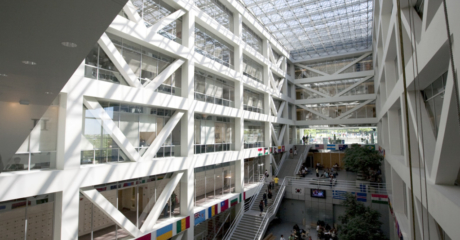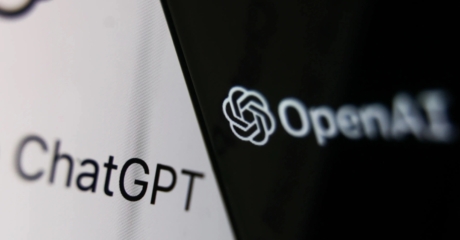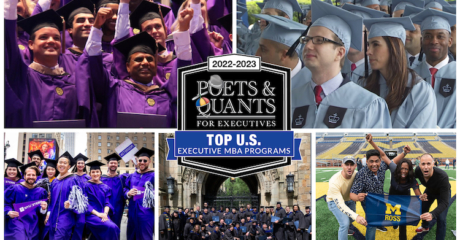Baruch College’s Executive MBA begins with Boot Camp, a three-week series of refresher modules in finance, statistics, and accounting to ease students back into the classroom and help them brush up on basic quant skills. For students starting the program in the fall of 2019, Boot Camp sessions are being held on July 27, Aug. 3 and Aug. 10.
A residential orientation weekend–Aug. 16-17–includes team-building activities to help students get to know their cohort, as well as sessions on time and stress management, academic integrity, and career management. Then, classes actually begin on Sept. 7.
Over a 20-month timeframe, students will take classes on Saturdays from 8:30 a.m. to 5:30 p.m., with occasional Fridays in trimester doses. Baruch runs its EMBA on a trimester basis, with students taking nine credits in each trimester for a total of 48 credits. This is a no-frills, no-nonsense curriculum. There are no elections or concentrations. Every course is required. Students travel through the EMBA program as a cohort, taking all classes together.
The first trimester features a trio of three-credit courses: Managerial Statistics, Marketing Management and
Financial Reporting. Students will take four courses in the second trimester: Information Technology Strategy, Strategic Business Communication, both of which are three-credit courses, and two 1.5 credit classes, Firms in the Global Economy and Introduction to International Business. The rest of the trimesters include a mix of business essentials and some innovative elements, including a 1.5 credit course called
“Improv for Leadership” along with a leadership capstone.
The program’s culminating experience is an eight-to-ten-day international study tour meant to broaden students’ vision by exposing them to a country with a different history, a different culture, different challenges, and different ways of doing business. Students travel with faculty to two different international locations and meet with companies and organizations in each location. Recent study tours have been to South Africa, Vietnam, Singapore, and China. The trip, a clear highlight of Baruch’s EMBA, is part of a single 3-credit course.
At a cost of $86,500, Baruch’s program favorably compares with rival options in the New York metro area. Only two other programs at Yeshiva University and Pace University–have lower price tags. While Baruch’s EMBA program is not ranked by U.S. News, the Financial Times nor The Economist, the school’s more traditional MBA program does place 55th by U.S. News and 83rd among the best U.S. MBA programs by The Economist. Those rankings merit Baruch’s full-time MBA a 70th place finish in Poets&Quants’ latest composite ranking (see Ranking The Best Executive MBA Programs In New York).
A hallmark of the Baruch EMBA program is its diversity. As is true of its undergraduate population, the school tends to draw a good number of first-generation students into the program (see A Business School Where The American Dream Is Alive & Well). The largest single group of students in the Class of 2018, some 29%, work in healthcare, while the second largest group–21%–come from finance. The government, nonprofit, tech and media/entertainment sectors each took up 7% of that class. Half of the class graduated with a non-business major, a reason why the Boot Camp sessions can be extremely helpful to poets who attend the program.
Unlike most other EMBAs in New York, Baruch also draws a larger than typical percentage of women to its EMBA. In the Class of 2018, in fact, women made up 64% of the cohort. The average age of an incoming student is 37, with a range from the late 20s into the 40s. Students bring an average of 12 years of work experience into the program.









